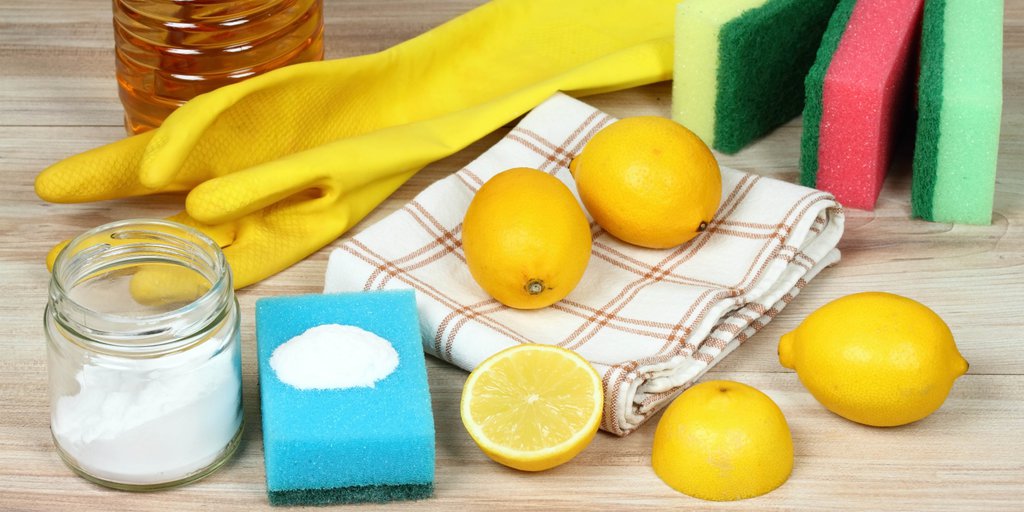Lemon juice serves as an excellent cleaning agent for various tasks, particularly when dealing with challenging combination stains like sunscreen and for removing strong odors from cutting boards, such as those caused by onions and garlic. However, it is crucial to exercise caution as lemon juice is unsuitable for certain surfaces and fabrics.

Lemon Can Damage Certain Surfaces
Most importantly, lemon should never be combined with chlorine bleach or products containing bleach due to the creation of hazardous toxic fumes. To prevent costly damage or potential dangers, it is essential to be aware of common household items that should never come into contact with lemon juice. Here are some things that should never be used with or cleaned with lemon.

Bleach and Lemon Shouldn’t Be Mixed
Bleach Combining lemon juice with chlorine bleach results in a chemical reaction that produces toxic chlorine gas. Just like the advice not to mix bleach with vinegar, the same applies to lemon juice. Under no circumstances should you ever mix chlorine bleach or products containing it with lemon juice.
Natural Stone The use of lemon juice on natural stone surfaces, including countertops, backsplashes, floors, furniture, and accessories, is not recommended. The acid in lemon juice can lead to pitting in natural stones such as marble, granite, and slate.
Hardwood Floors Lemon juice has the potential to damage the seal on hardwood floors, causing them to appear dull and making them more susceptible to harm. Avoid cleaning hardwood floors with lemon, and if any lemon spills occur, clean them up promptly to minimize exposure time to the citric acid.
Brass Plating Cleaning brass-plated items with lemon juice can result in corrosion. While solid brass can be polished using lemon or acidic cleaning agents, it’s crucial to avoid using lemon juice on brass-plated objects. To distinguish between solid brass and brass-plated items, perform a magnet test, if the magnet does not attract to the metal, it is solid brass; however, if there’s a magnetic pull, the piece is brass-plated and should not be cleaned with lemon juice.
Dark or Brightly Colored Clothing Direct application of lemon juice on dark or brightly colored clothing and textiles can lead to irreversible color loss due to its mild bleaching effect. It’s best to avoid squeezing lemon juice directly onto dark or vibrant clothing, household goods, and upholstery.

By being mindful of these precautions and avoiding the use of lemon juice on the mentioned items, anyone can make the most of its cleaning potential without causing any harm or unintended consequences. While lemon juice is a versatile and effective natural cleaner for many household tasks, it is essential to exercise caution and be mindful of its limitations. To ensure safety and prevent damage, lemon juice should not be used on surfaces like natural stone and hardwood floors, as well as on dark or brightly colored fabrics.
Additionally, lemon juice should never be mixed with chlorine bleach or products containing bleach, as this can lead to the release of toxic fumes. By understanding these guidelines and using lemon juice wisely, anyone can harness its cleaning power to tackle various chores while maintaining a safe and pristine living environment.
Embrace JOMO — The Joy of Missing Out
In a world consumed by FOMO (Fear of Missing Out), there’s a refreshing concept that can elevate our happiness – JOMO (Joy of Missing Out). While FOMO triggers envy, loneliness, and discontent, embracing JOMO brings a peaceful sense of contentment.
Outsmarting FOMO – Finding JOMO

To discover JOMO, it’s crucial to outsmart the triggers that fuel FOMO. One effective technique is to minimize the accessibility of social media apps by moving them away from your phone’s home screen. By creating distance, you can question the deceptive perception created by idealized images and gain a fresh perspective on the reality behind the online facade.
Redirecting Focus
Instead of letting others’ bragging trigger your FOMO, practice extending empathy. Recognize that individuals who share their seemingly perfect lives may be compensating for underlying insecurities or unhappiness. By redirecting your focus and extending compassion, you can shift your attention to what truly matters in your life.
Allowing Self-Compassion
Rather than suppressing negative emotions, embrace sadness when feeling left out. Acknowledge your feelings and offer yourself compassion. Understand that it’s natural to experience moments of longing and allow yourself the space to process those emotions. Through self-compassion, you can find the strength to move forward.
Savoring the Wonder

Amidst feelings of missing out, pause and focus on the small wonders around you. Appreciate the little moments that bring joy and nostalgia. Whether indulging in a cold popsicle on a hot summer day or finding solace in a simple, quiet moment, these experiences can transform your fear of missing out into genuine pleasure.
Borrowing From Nordic Wisdom
Take inspiration from Nordic countries, which are renowned for their happiness. Embrace their approach of having three to five social commitments per week, emphasizing the importance of social support and meaningful relationships. Engage in active hobbies and join clubs or groups that align with your interests, reducing the tendency to compare yourself to others.
Practicing Awareness
Develop an awareness of activities that lift your spirit and those that drain your energy. Reflect on each day and identify the small actions that brought you joy or depleted your sense of well-being. This simple practice allows you to consciously fill your life with more fulfilling moments, nurturing your happiness.
Cultivating Mindfulness
Embrace mindfulness to break free from the racing thoughts of FOMO. Dedicate at least 10 minutes daily to be fully present and engage in activities that bring you serenity. Whether it’s a stroll or a mindful appreciation of your morning coffee, savoring the present moment allows you to gain a sense of calm and gratitude.
Turn to the Bright Side
View FOMO as a catalyst for personal growth rather than an opposing force. Recognize that witnessing others’ achievements or joyous experiences can inspire and motivate you on your own path. Shift your mindset, understanding that there is enough happiness and opportunities for everyone.
Sharing Appreciation
Cultivate gratitude by regularly sharing what you’re thankful for with others. Embrace JOMO by expressing gratitude once a week, deepening your connection with those around you. As you reveal your authentic self and acknowledge the small moments that bring joy, you’ll find fulfillment in knowing you are where you’re meant to be.